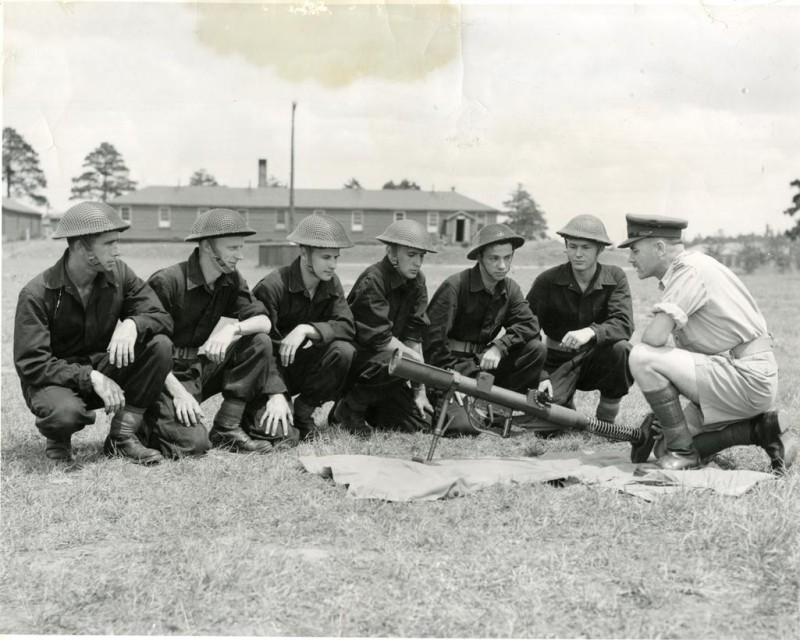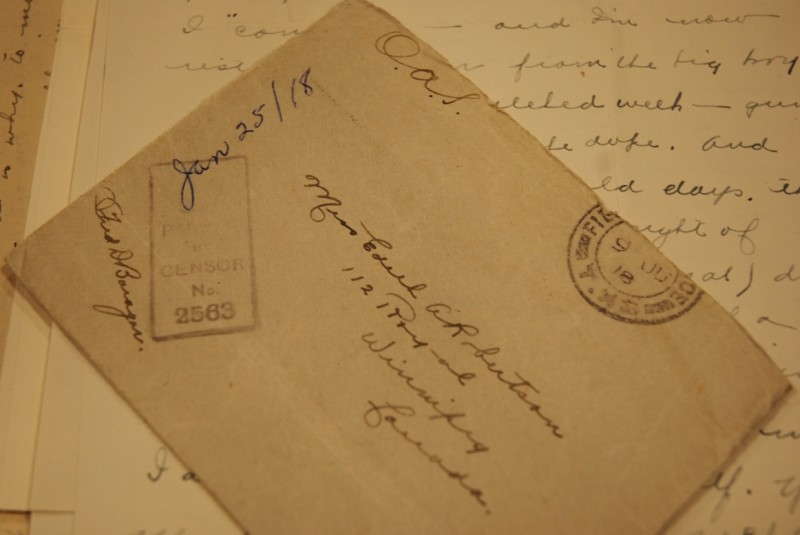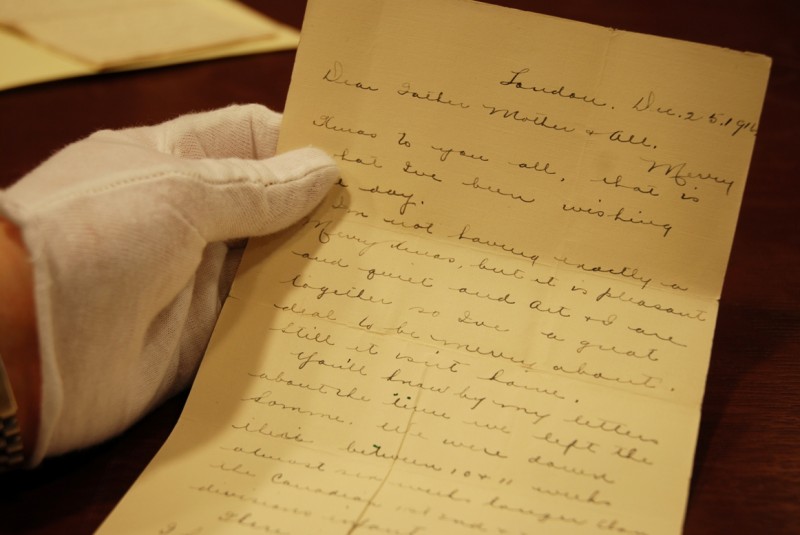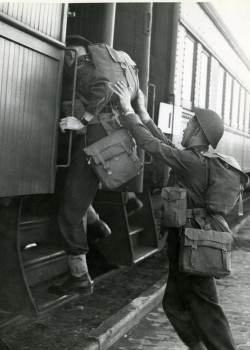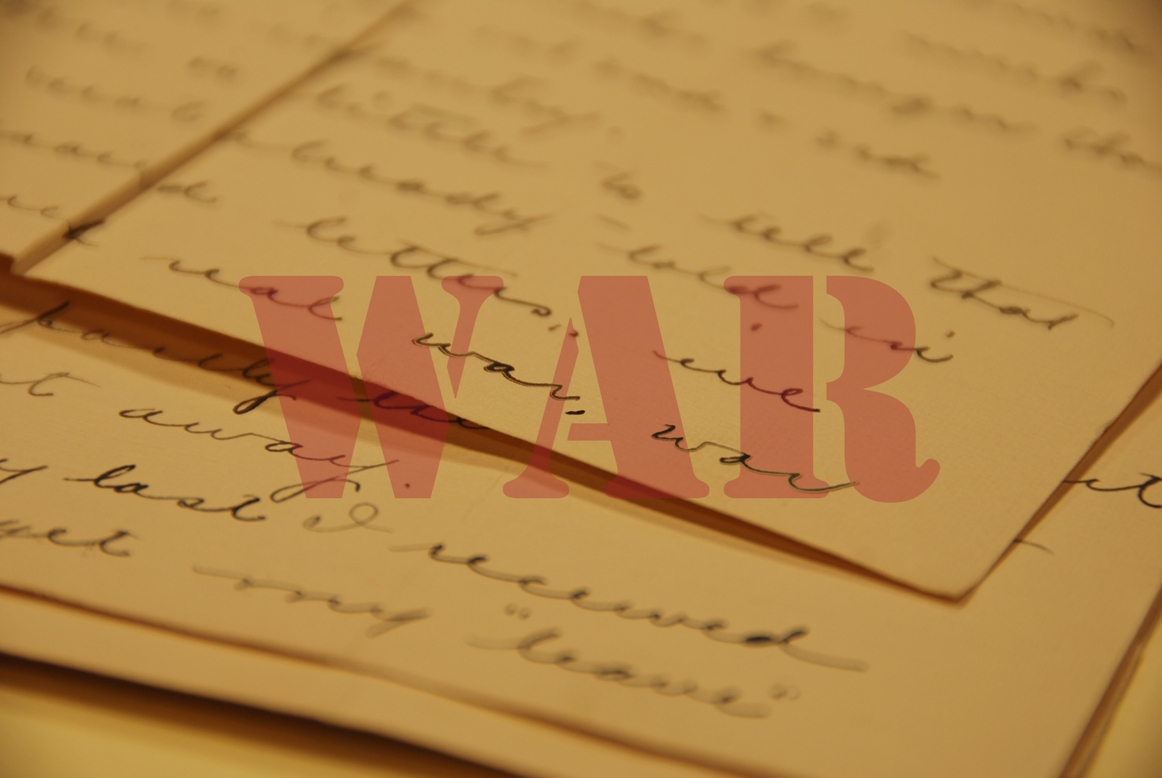
‘We saw more real war, war in all its awfulness and grandeur and gallantry and waste’
The letters of Frederick D. Baragar provide a moving vision of the First World War. Born in Rawdon Township, Ont., in 1891, he moved with his family to Elm Creek, Mb. in 1895 and received his BA from the University of Manitoba in 1914. In 1915 he enlisted with the Canadian Field Artillery in the 2nd Canadian British Expeditionary Force. He fought in a number of seminal battles such as the Somme, Vimy and Amiens, and he wrote many letters home to his mother and his long-time love Edith Anne Robertson, whom he married in 1919.
The following are excerpts from his letters, which are preserved in the University of Manitoba Archives.
Nov. 8, 1914, Toronto
Dear Mother, Father and all,
I don’t know just whom to write to this time. I owe you a letter, Mother, while my finances demand I write Father. Yes, I thoroughly enjoy Ontario, and country life here has so many advantages over life in the West. Of course I can’t really say I’d like to settle here. You see, I’m really a Westerner.
June 17, 1915, Kingston
Dear Father:
Camp life and lots of it, that is what we are getting now. It seems more like real soldiering here in the tent, the flaps beating in the breeze, and a candle half extinguished by the wind sitting of the corner of my suitcase…
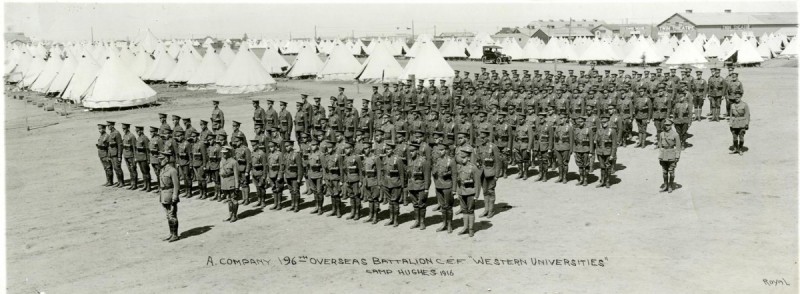
The 196th Overseas Battalion C.E.F. “Western Universities”, 1916. Photo from U of M Archives & Special Collections.
Aug. 23, 1915, Otterpool Camp
Dear Frank:
…Morning dawned and thro the mist gray forms appeared which in the clearing light showed to be more destroyers. Many of them lay about, in fact the whole harbor is alive with the smaller naval craft. After the mist lifted we could see the great rock hills that frown upon the harbor. I’ll bet they are alive with evil machines.
Sept. 29, 1915, Shorncliffe Camp
Dear Mother:
…I don’t pretend this to be a letter but just a sort of anxiety-quelling notification.
Oct. 19, 1915, Kent
Dear Ernest:
…Your last [letter] was welcome, especially the news as to the crop…. I would have liked to have seen it. But don’t worry, you can’t tell me too much farm news. Last week we were out with the horses almost every day and the gunners are now taking gun laying. A couple of months should see us pretty near going across.
Jan. 1, 1916, London
Dearest Edith:
Ten minutes after 1915 I’m wishing you a splendid New Year, rich in God’s greatest blessings, and, little girl, how I’m praying that 1916 may see this war over and me home with my love. There, comrade-wife-to-be, what more could I wish?
Jan. 9, 1916, Shorncliffe
Dear Father and Mother:
…. I’m anxious now to tell you that from now on you must on no account worry about me when you get no letters.
Jan. 5, 1916, Kent
Dearest Edith:
…the story is only begun….Often I think of Tennyson’s Echoes
Blow, breezes, blow,
set the wild echoes flying
Answer, echoes, dying, dying, dying.
Oh, love, they die in yon rich sky
They faint on forest, field and river
Our echoes roll from soul to soul
And grow forever and forever
….This war must surely end well, mankind must be better, but I’m afraid I’m not so hopeful, I’m afraid that the lives most of us soldiers live, the anger and hate in the battle will partly waste the fruits of glorious victory. But don’t think I despair. I wouldn’t be here if I did. …Goodnight, dear girl of mine, Yours with worlds of love, Fred.
Jan. 24, 1916, “The Somewhere”
Dear Ernest:
…I can scarcely write letters these days, our correspondence is so hedges about with “don’ts” that neither I nor the censor have the least idea whether I can write anything at all….But this I hope I can tell you, we are across the “Ditch” that Napoleon was wont to despise. We have been billeted in an old barn several miles from the line and only near enough to hear the distant roar of the guns. Peaceful – why, boy, it’s as peaceful as Manitoba.
April 5, 1916, The Somewhere
Dear Mother:
This while back I haven’t been doing very well by you people, but always remember that no news is the very best in this game.
April 10, 1916, The Somewhere
Dear Frank:
…We are back for a rest for a few days. Say, it does seem odd not to hear the roar of the guns and the patter of rifles and machine guns. Here we are laying on the grass and enjoying the wonderful sunshine and spring weather, it is simply glorious.
May 2, 1916, The Somewhere
Dear Mother:
…I spent one wretched day after Dick C dropped in to tell me that Bill C was killed, but today I hear after four days, he had been found by a couple of scouts, dangerously wounded but alive…At least I am able to hope.
Dec. 25, 1916, London
Dear Father, Mother and All,
Merry Xmas to you all, that is what I’ve been wishing all day….I’m not having exactly a Merry Xmas…There is little to tell that I haven’t already told in the censored letter, we saw more real war, war in all its awfulness and grandeur and gallantry and waste. We were in several big bombardments and had several positions, each taken up after an advance. We saw hard service but it was real work, tho we surely did rejoice when at last we were really on the march from that region of awful mud. And yet we know that we have left in that shell torn region some of our best and truest comrades.
Jan. 9, 1917, The Somewhere
Dear Mother:
Just a note, I’m feeling somewhat under the weather, this cussed cold has been with me now since Dec 1st. Don’t be alarmed, it wavers between better and worse, and just now it is worse. This European climate is devilish to say the least. Say I’d give about everything I own for a few snappy clear, dry, 20 below, Manitoba mornings.
May 5, 1917, The Somewhere
Dear Folks at Home:
I’ve only time for a rather brief not and besides there is little to tell. The papers will give you a much fuller account of our activities that I can possibly give in a letter. And if you are reading the papers you’ll know how bust we are. I’m still at the guns and we’ve been both giving and taking, but believe me, “it is more blessed to give than to receive”.
May 20, 1917, The Somewhere
Dear Folks at Home:
There is little to write, things are moderately quiet and our life is reducing itself to a routine. I’m still with the guns, we’ve been doing a good deal of night work, completing fairly deep dugouts that make us decently immune from shell fire.
May 26, 1917, The Somewhere
Dear Father:
…The other day coming back from the guns we gathered a bunch of splendid lilac and that bouquet has filled our sordid dugout with its beauty and fragrance. I’m sending to Mother a sprig of that lilac, plucked in this little village that has given its name to Canada’s splendid feat of April 9th.
Sept 10, 1918, The Somewhere
Dear Sis and Folks:
I’ve not been much of a correspondent lately, have I? But if you ever get a newspaper you’ll know why. …We came up here from south just after this show had been started by our other divisions – then we went in, a rather rough time the Boche gave us with shelling – but we managed to nibble nice corners two mornings in succession – then we moved up for the big smash. At 5 a.m. our guns barked and thundered. The barrage time went forward, reports came back of success. At 8 our guns ceased as we were out of range – then it was my job to take one gun forward in close support of the infantry. By then we were on the crest right at the famous switch line, and I found targets – guns firing in the open on our infantry – gun limbers and wagons hastening up to pull out guns endangered by our advance. I gave the word, our teams trotted on to the crest into clear view of the enemy – unlimbered and galloped back under cover – splendid drivers – the maneuver was done with casualty. Then the gun in a second was in action, over open sights – as you’d aim over a rifle, our layers were laying on the Huns guns that dared to fire in view of us. A few rounds to get the range – then our shots fell beside the gun and the enemy gunners ran in confusion. In ten minutes we had the whole enemy battery silenced, then we turned on more favorable targets, teams and limbers coming up for guns – and among these we caused great confusion, turning back some teams and certainly causing casualties. Then the enemy battery teams came up to the battery we had been firing on, and in spite of us, by taking one gun at a time, they managed to get their guns away. And so this is the second time our battery had fired over open sights – the artilleryman’s dream.
Nov. 12, 1918, The Somewhere
Dear Ern Boy:
…It is all over now but the marching, the flag waving and the homecoming. Thank God, the Great Killing is over, peace promises soon to reign in the land, and Thank God, the victory rests with the righteous cause. Those gallant souls who have gone over the edge have not died in vain. But here, so near where the last battle was fought, we cannot realize that there is an end – that no more shall we hear the boom of guns, that the rattle of mitrailleuses, the thunders of battle – these things seem to be a very part of life – and yet in calm reason we know that yesterday ceased the Great Killing.…We are comfortable here in a house whose windows were all broken – the owners have just come through the line and are coming home – everywhere the roads are crowded with these poor refugees – carrying their possessions in hand carts and wheel barrows. We scarcely know what is ahead of us but anticipate a rather tedious time – but the war is over and home dances fair on the horizon. Tootle-oo, boy.
Yours,
Fred







